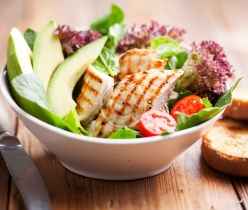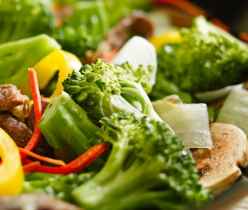Eating more can be healthier than ever when you focus on eating nutrient-dense foods. These foods are packed with vitamins, minerals, and other nutrients that your body needs to stay healthy. They are also often lower in calories and fat than processed foods.
Some examples of nutrient-dense foods include:
- Fruits and vegetables: Fruits and vegetables are packed with vitamins, minerals, and fiber. They are also low in calories and fat.
- Whole grains: Whole grains are a good source of fiber, vitamins, and minerals. They are also a good source of complex carbohydrates, which provide your body with sustained energy.
- Lean protein: Lean protein is a good source of protein, iron, and zinc. It is also low in fat.
- Healthy fats: Healthy fats are a good source of omega-3 fatty acids, which are important for heart health. They are also a good source of energy.
When you focus on eating nutrient-dense foods, you can eat more and still be healthy. You will also have more energy and feel better overall.
Here are some tips for eating more nutrient-dense foods:
- Make sure half of your plate is filled with fruits and vegetables at every meal.
- Choose whole grains over refined grains whenever possible.
- Choose lean protein sources, such as chicken, fish, beans, and lentils.
- Limit your intake of unhealthy fats, such as saturated and trans fats.
- Eat plenty of fiber-rich foods, such as fruits, vegetables, and whole grains.
- Drink plenty of water.
By following these tips, you can eat more nutrient-dense foods and improve your overall health.



